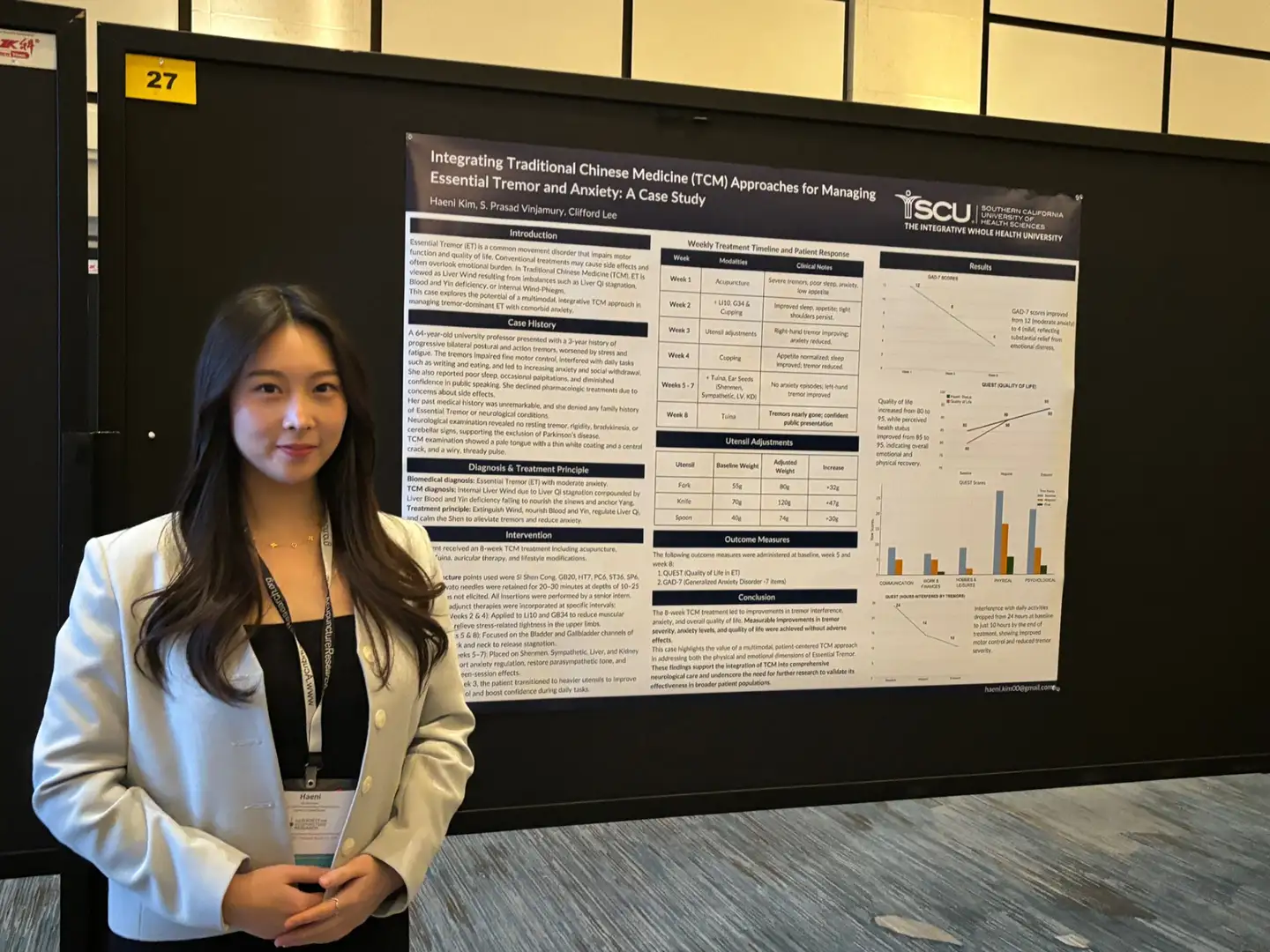Acupuncturist Education Requirements: A Complete Guide
Acupuncturist education requirements are becoming increasingly important as the demand for skilled acupuncturists rises alongside the growing interest in alternative medicine. More people are turning to acupuncture for holistic healing, creating a surge in opportunities for well-trained professionals in this field.
Proper education is the cornerstone of a successful career in acupuncture. With the right education, acupuncturists can confidently navigate the nuances of both ancient practices and modern healthcare systems.
At Southern California University of Health Sciences (SCU) we offer comprehensive programs, including a Doctorate and Master’s in Acupuncture and Chinese Herbal Medicine, designed to equip you with the knowledge and hands-on experience essential for thriving in this dynamic and rewarding profession.
Understanding Acupuncturist Education Requirements: Your Path to Success
Acupuncturist education requirements are the foundation for a successful career in this ever-growing field. Proper education ensures you’re equipped with the knowledge and skills to excel. Here’s what you need to know:
- The Path to Licensure
To become a licensed acupuncturist, you’ll embark on a comprehensive educational journey. This includes rigorous coursework in both theoretical and clinical practices, which are crucial for mastering traditional Chinese medicine.
- Building Foundational Knowledge
Success in acupuncture begins with a solid grasp of health sciences. Courses in biology, chemistry, and anatomy will prepare you for the more advanced studies that lie ahead. These subjects are key to developing the expertise needed to treat patients effectively.
- Importance of Accreditation
When choosing an acupuncture program, accreditation is key. At SCU, we’re proud to be fully accredited, ensuring that our programs meet the highest standards for professional practice.
Applying to SCU
Ready to take the next step? To apply to SCU’s acupuncture program, you’ll need a minimum of 90 semester credits (or 135 quarter credits) from an accredited institution. If your GPA is below 2.5, don’t worry—we offer Accelerated Science courses to help you meet our admission requirements.
Navigating Licensure: Steps to Becoming a Licensed/Certified Acupuncturist
Understanding the acupuncturist education requirements is just the first step; earning your certification and state licensure is equally important for practicing professionally. Let’s break down the process:
NCCAOM Certification
The National Certification Commission for Acupuncture and Oriental Medicine (NCCAOM) is the key certifying body for acupuncturists. Achieving this certification demonstrates your competence in acupuncture and Oriental medicine, and it’s recognized in most U.S. states.
- Certification Process:
To become NCCAOM certified, you’ll need to pass a series of exams that cover key areas such as Acupuncture with Point Location, Foundations of Oriental Medicine, Herbal Medicine, and Biomedicine. Completing an accredited program, like the one offered at SCU, prepares you for these exams.
- Exam Preparation Tips
Preparation is crucial for success. Utilize study guides, take practice exams, and consider joining study groups. At SCU, we offer resources and support to help our students excel in the certification process.
California Licensing Requirements
In California, you must also meet state-specific requirements to practice. This includes passing the California Acupuncture Licensing Examination (CALE) after completing your education. Continuing education is required to maintain your license, ensuring you stay current with new developments in the field.
- Maintaining Licensure
Staying licensed requires ongoing learning. California mandates continuing education to ensure acupuncturists maintain their skills and knowledge. At SCU, we support our faculty with a range of continuing education opportunities, helping them stay at the top of the field and teaching our students.
Navigating Acupuncturist Education Requirements: Your Guide to a Successful Application
Applying to an acupuncture program is a significant step toward your future career. Here’s a detailed guide to help you navigate the process:
Review Educational Requirements
- Prerequisite Credits: You’ll need a minimum of 90 semester credits or 135 quarter credits from an accredited institution.
- Recommended Majors: While any major is acceptable, a background in biology, health sciences, or pre-medical studies will give you a strong foundation for the program’s rigorous curriculum.
- GPA Requirements: A minimum GPA of 2.5 on a 4.0 scale is required. If your GPA is lower, SCU offers Accelerated Science courses to help you meet this requirement.
Prepare Your Application Materials
- Transcripts: Gather official transcripts from all post-secondary institutions you’ve attended. These will need to be submitted as part of your application.
Meet Technical Standards
- Physical and Technical Requirements: Ensure you meet the physical and technical standards necessary to complete the program, with or without reasonable accommodations. This includes the ability to perform hands-on clinical procedures.
Submit Your Application
- Application Form: Complete the SCU application form online. Be sure to fill out all sections thoroughly and accurately.
Explore Financial Aid Options
- Scholarships and Grants: Explore our scholarships and grants available. Don’t forget to apply for financial aid and read up on our Fixed-Rate Tuition Guarantee.
Choosing Excellence: How to Select the Right Acupuncture Program
Selecting the right acupuncture program is crucial for your success. Here’s what to consider:
What to Look for in an Acupuncture School
-
Accreditation and Reputation
Ensure the program is accredited by reputable organizations, such as the WASC Senior College and University Commission (WSCUC) and the Accreditation Commission for Acupuncture and Herbal Medicine (ACAHM). At SCU, we’re proud of our accreditation and strong reputation in the field.
-
Curriculum Comprehensiveness
A robust curriculum that covers both traditional Chinese medicine and modern biomedical sciences is essential. SCU offers a comprehensive program that prepares you for both the NCCAOM certification and state licensure.
- Clinical Training Opportunities
Look for schools that offer ample clinical training. At SCU, we provide hands-on experience in our modern health center, along with opportunities for hospital rotations and private practice settings.
Why Choose SCU?
- SCU stands out with our advanced learning technologies, flexible scheduling options, and exclusive access to hospital rotations at the Children’s Hospital of Orange County (CHOC). Our program is designed to give you a competitive edge.
- Our campus is equipped with state-of-the-art facilities, including cadaver labs and Anatomage tables. We also offer extensive online resources to support your learning journey.
- At SCU, you’ll gain practical experience through early clinical exposure and have the chance to network with professionals in the field, setting you up for future success.
- SCU offers a range of financial aid options to help make your education more affordable. Take advantage of scholarships, grants, and our Fixed Rate Tuition Guarantee, which locks in your tuition rate for the duration of your program, ensuring financial predictability.
Achieve Your Goals with SCU and Meet All Acupuncturist Education Requirements
Understanding acupuncturist education requirements is the first step toward a rewarding career in holistic healthcare. From completing the necessary educational prerequisites to obtaining your license, SCU is here to guide you every step of the way. Our accredited programs provide you with the essential knowledge, clinical experience, and professional support needed to excel in this field.
A career in acupuncture is not just a profession—it’s a calling that allows you to make a meaningful impact on others’ lives. At SCU, we’re committed to helping you achieve your dreams and become a leader in this growing industry.
Learn more about SCU’s Doctor of Acupuncture and Chinese Herbal Medicine program.
Ready to take the next step? Apply now and start your journey toward becoming a licensed acupuncturist with SCU today!
FAQs
What is the first step to becoming an acupuncturist?
The journey begins with completing the necessary educational prerequisites. Most programs require at least 90 semester credits or 135 quarter credits from an accredited institution. After that, you’ll need to enroll in an accredited acupuncture program that provides both classroom instruction and clinical training.
How long does it take to complete an acupuncture program?
It typically takes around three to four years to complete a full-time acupuncture program. This includes both theoretical coursework and hands-on clinical practice. Part-time options are also available, which may extend the duration but offer more flexibility.
What are the state-specific licensing requirements for acupuncturists?
Licensing requirements vary by state, but generally include passing a state licensing exam, such as the California Acupuncture Licensing Examination (CALE). Additionally, maintaining licensure often requires continuing education to keep your skills and knowledge up-to-date.
What are the Acupuncturist Education Requirements?
Acupuncturist Education Requirements typically include completing 90 semester credits or 135 quarter credits from an accredited institution, enrolling in an accredited acupuncture program, and gaining hands-on clinical experience. These steps ensure you’re well-prepared for certification and licensure, paving the way for a successful career.
Related Posts




